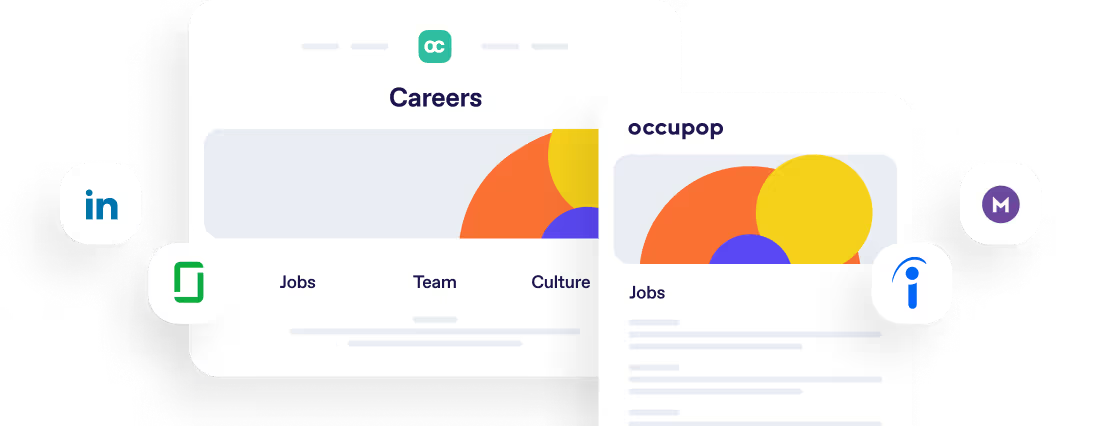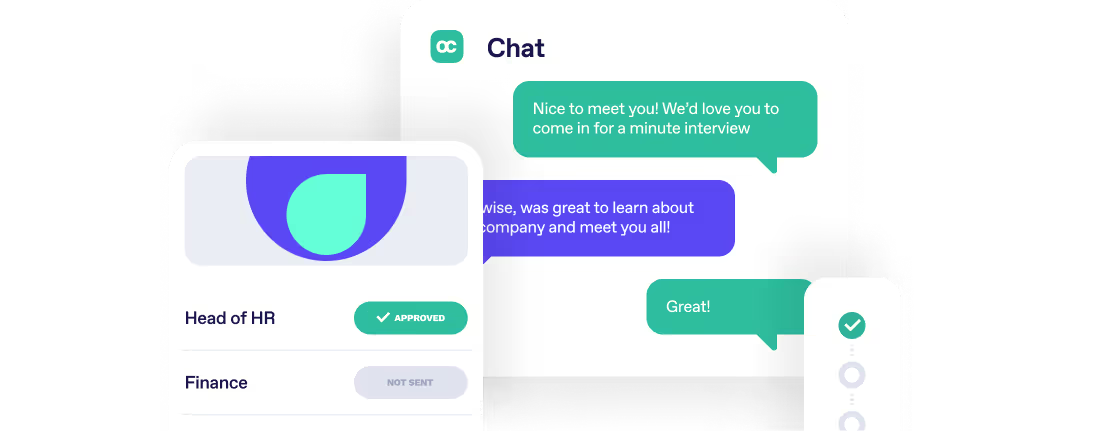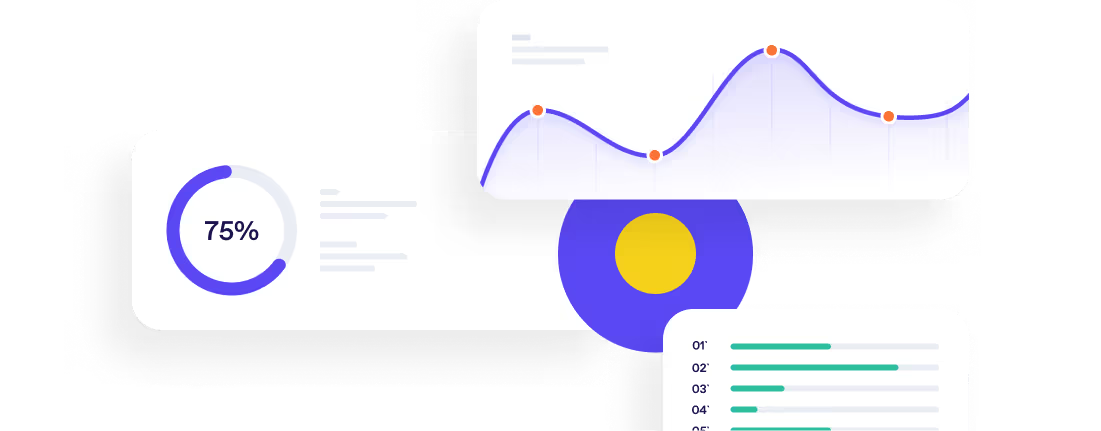Top 5 Recruitment Trends 2020



Though this upwards recruitment trend is positive, it does present a new set of challenges; a tightening labour market, shorter time frames employees stay with companies and more competition to hire the best candidates for your business, quicker and more effectively.
With this in mind, we look at why companies need to invest in updating their recruitment processes and outline the top 5 recruitment trends to help you gain the competitive edge when hiring, ensuring you hire the best people for your business.

Why investing in the latest recruitment trends is so important?
One recruitment trend that remains, and is the basis for companies updating their processes, is candidate experience. Candidates now drive the process and depending on their experience, your hiring and your brand can be directly impacted. For example, according to TalentLyft, a positive recruitment experience motivates 97% of candidates to refer other candidates with over 50% of candidates likely to share their positive experiences via social media.
Further to this, Deloitte reports that 87% of candidates say a great recruitment experience can change their mind about a company they once doubted. While on the flip side, 83% of individuals surveyed say a negative interview experience can change their mind about a role or company they once liked.
The main areas to focus on when improving candidate experience are as follows:
- Shortening time-to-hire
- Increased candidate communication
- Promoting employee brand, experience & growth
- Being adaptable to suit the candidates needs and availability
Therefore, the recruitment trends listed below relate back to the importance of candidate experience and improving hiring processes for businesses to hire quickly and effectively.
The top 5 recruitment trends 2020
1. AI to remove recruitment admin
A recent survey by Modern Hire found that 50% of firms use AI to source and screen candidates. AI led recruitment is becoming more available for smaller companies, enabling them to significantly reduce the CV screening time and action the best candidates quickly, much like their larger competitors. A common myth about AI screening is that the AI deletes any CVs that don’t meet the criteria. This is not the case for the majority of AI screening tools. The control is still in your hands, all that has changed is the order of how the candidates are listed.
Another AI led trend that continues to grow is incorporating chatbots into the recruitment process. Chatbots allow for anytime communication with candidates, ability to register interest, instant job apply for open roles and interview scheduling, all leading to a more efficient process that can be easily adapted to suit your hiring needs.
INSERT-CTA
2. Hiring for soft skills
Between now and 2030, demand for social and emotional skills will grow across all industries, 22% in Europe, according to a recent McKinsey report. AI and automation will re-shape traditional roles with hard skills being most susceptible to automation. Havard Business Review has outlined the following soft skills and emotional competencies as being most advantageous for candidates to possess to beat the AI and automation takeover:
- Results-oriented
- Relationship-focused
- Process and rule followers
- Innovative and disruptive thinkers
- Pragmatic
It is important for companies to look at their business and assess where they plan to automate and what are the future trends that will influence the roles they hire for. Once this is established, the skills necessary to carry out roles now and into the future should be outlined in the job description and assessed during interview stages. Tools like interview scorecards, game based assessments and AI video interviewing allows HR & hiring managers easily assess candidates for both hard and soft skills necessary to carry out roles but also their ability to grow and adapt within the company along with future of work trends.
Ultimately with a tightening labour market, you want to ensure you offer your employees a progressive growth that benefits both their career path and your business. Hiring for soft skills at candidate stage will benefit your business in the long run but also improve employee retention rates.
3. Use of automation to give HR teams time to focus on retention
Certain HR trends remain key to employee retention, and ultimately attraction, in 2020, including: well-being, remote working, company culture and learning & development. However, according to Career Builder, the average HR manager is losing 14 hours a week, manually completing tasks the time to focus on these areas is limited, particularly in SME’s where there may only be a small team.
Therefore, automation is becoming a key recruitment tool to give HR teams more time to focus on retention strategies. In the same Career Builder report it found that around 72% of employers predict that elements of their talent acquisition will be automated within the next decade. Such time intensive processes that can now be significantly reduced include: interview scheduling, multiple email, workflows, hiring manager review. The automation of these processes also allows for a greatly improved candidate experience.
4. Employer brand at the heart of candidate communication
The current and incoming workforce no longer want just a 9-5 role, they are looking for a company that aligns to their values and causes they feel strongly about, they want to feel like they’re contributing to the ‘bigger picture’. Companies now have the opportunity to build up and promote a brand that is more social and ethically responsible, along with being a fun and inclusive place to work.
The outcome of this; companies with great employer brands receive 50% more qualified applicants and see a 50% reduction in cost-per-hire, according to LinkedIn research. With 75% of jobseekers considering an employer’s brand before even applying, an attractive brand may be the difference between finding the perfect person for the role – or losing them to a competitor.
The best way to promote your brand? Through your current employees and where your candidates (both passive and active) are i.e. social media. In fact, a recent SHRM study found 84% of businesses are now using social media to hire new talents.
For more on using social media to recruit, read our blog here.
5. Recruiting sideways
93% of employees would stay at a company longer if it invested in their careers according to LinkedIn’s Workforce Learning Report. As previously mentioned, soft skills are becoming more necessary in the workforce and career development is now a key factor in employee retention, therefore HR departments should look at their current workforce for potential job opportunities. This is done through HR data and analytics.
HR now has the ability to capture beneficial data on their current employees including: education, soft skills, career progression goals and L&D. This data can then be used to match potential jobs with current employees. There are of course considerations for this type of recruiting i.e. backfilling the position that would then be lost and the potential hard skills necessary to upskill the employee to the new role. Outside of the increased employee engagement and retention benefits, HR departments should calculate the cost of hiring with the cost of upskilling and backfilling to assess the financial implications of this new trend in hiring.
INSERT-LINE
Sound like the trends you want to invest in for 2020?
Good, Occupop can help you with all of them! Our AI technology, interview scorecards, automation tools, social & careers page integration and real-time HR analytics makes it easier than ever before to embrace the latest recruitment trends and ensure you are building the best teams and the best business through hiring the best candidates. Find out how we’ll help you here.
Summary Points
What are the top recruitment trends for 2020? Candidate experience is still key and the driving force for keeping on top of recruitment trends.
- AI is becoming more available and popular for smaller businesses as well as larger. AI is now essential for a more personal candidate experience and to remove admin
- With the rise of AI and Automation, companies are now looking at the soft skills of their employees and candidates. By planning the hard and soft skills you will need, or not need in the future, you can greatly influence your hiring.
- Automation allows teams to focus on what really matters, your people. With retention becoming more challenging, HR teams need to remove time-intensive processes and work on retention strategies.
- 75% of candidate consider an employers brand before applying so it is a worthwhile investment to listen to your employees need and values, then build and promote a brand around this.
- Don't always look outwards, consider your current employees skills and adaptability through data, analytics and surveys, and consider recruiting sideways.
Simple. Beautiful.
Recruitment Software.
HR updates sent straight to your inbox
You might also like...


Manage your entire hiring process simply, from engagement to management, hiring and onboarding







Simple. Beautiful.
Recruitment Software.
Recruitment Software.






